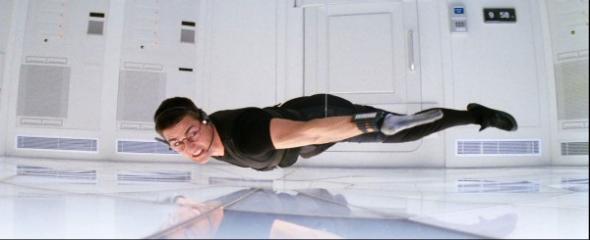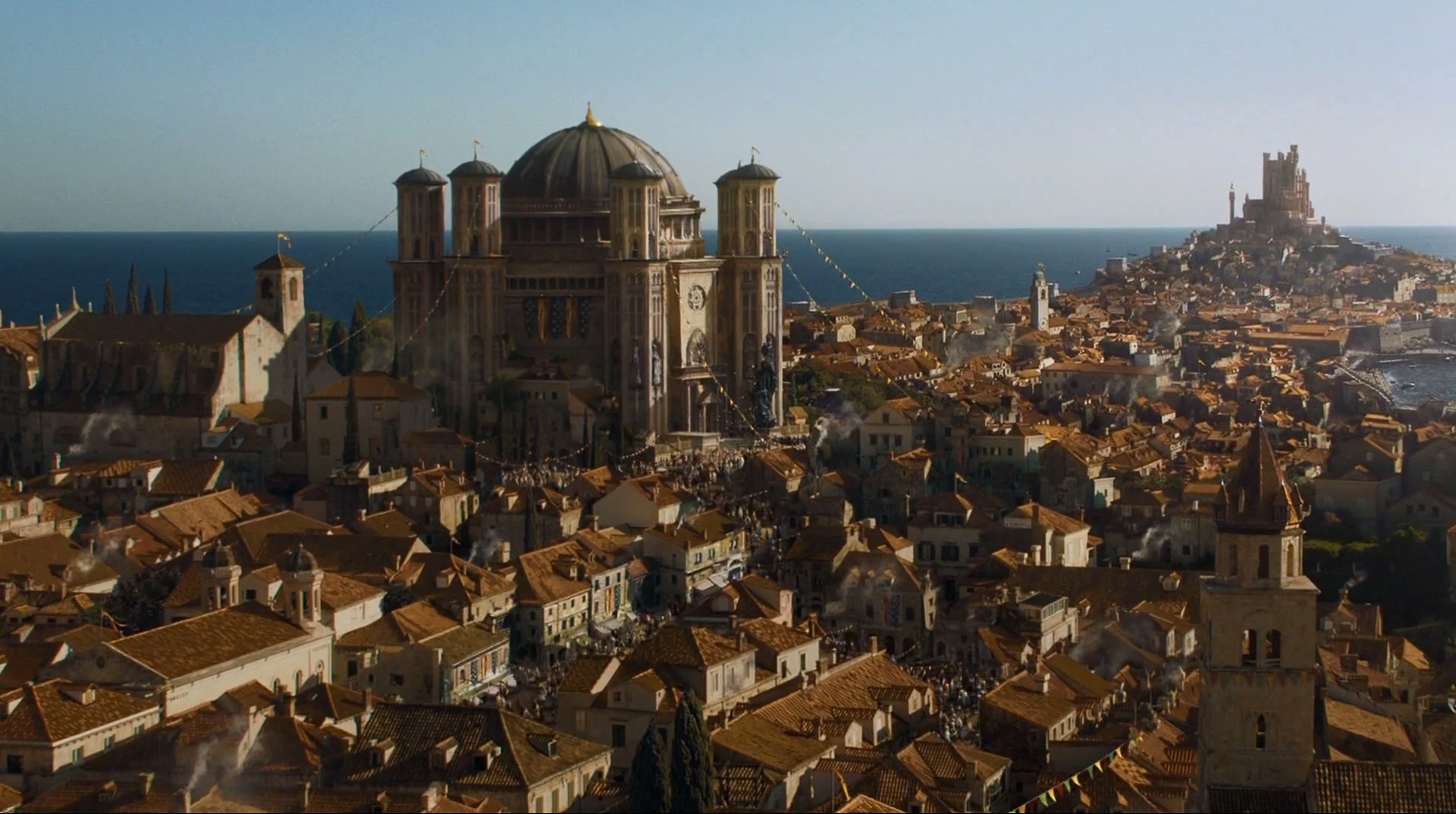There’s a moment in Mission Impossible: Fallout where the
franchise seemed to have completely gone off the rails. Ethan Hunt, after
saving his teammate, loses three balls of plutonium. Fade into a hospital
scene, and Hunt stares dramatically into the middle distance as Wolf Blitzer
soberly announces that Rome, Jerusalem and Mecca have been nuked on the TV screen.
This is of course all an elaborate set up to get information from the first of
three bad guys in the film, but the effect was jarring. Had they lost their
minds? Had the filmmakers completely and utterly destroyed any and all tension
for the remaining two hours of screen time? Would any of the car chases, foot
chases, helicopter chases and sundry other chases be worth a damn?
It’s a clever moment with a fun reveal, but it did get me
thinking – why did that work so well? What's the appeal of Mission Impossible?
I don’t think it needs to be left as just subtext – these films
are just insane to look at. Tom Cruise has carved himself a place in the Hollywood
Pantheon as The Guy Who Does The Stunts, and they look incredible. A huge part
of the fun are the stories around the production. He
jumped off a plane – for real! He flew a helicopter through mountain ranges –
for real! He broke his foot leaping off a building – and kept it in the film!
There’s a lot to be said for how they’re shot as well.
Filmed on 50 mm, Fallout looks intentionally like a documentary, the camera
acting as much as it can like a real human eye, watching the action. Think back
on the sky dive – the grain of the light, the patient camerawork (no smash cuts
or zooms), the constant focus on Cruise which, even though you can only see his
face at the beginning and end of the scene, you have all the information you
need to know that, yup, that’s him in there.
There’s a reason why the finale of the first Mission Impossible
isn’t as well remembered as the vault scene; it’s not real. Now, of course a
helicopter in a tunnel attached to a train going 150 miles per hour isn’t going
to be real, but there’s no denying that it’s aged poorly. What’s great about
Rogue Nation and Fallout is that the stunt pieces are designed to match the
limits of physical stunt work within that environment. These films will
continue to look incredible long after other, more CGI heavy fare, begin to
look creaky.


One of these is iconic – one is kind of goofy now. Prizes for which is which!
Though it’s a hugely important part, I don’t think it’s the entirety
of the appeal. Otherwise, Tom Cruise Has a Normal Day for Tom Cruise Standards
would be a constant box office hit and no other films need be made.
But I also don’t think it’s the plots. In fact, I don’t
think anyone goes to one of these films for the bits where Alec Baldwin pulls
the strings with the CIA so The Syndicate doesn’t find out about the NOC list or
whatever-else-can-be-made-into-an-acronym macguffin is this time around. ‘We
need the thing so the other guys don’t get the thing so here’s Tom Cruise in a
water tank’ is just about enough logic to pull the story together.
Not to say that they should be incoherent. Fallout finds a
balance with this by refusing to mention the political landscape of central
Asia and simple focuses on the human cost of exploding a nuke there. Yes,
India, Pakistan, China and NATO would vigorously explode the entire world if
that happened in real life for horrifying, point scoring reasons. Nope, it’s
not important to know that for this film. What’s important is that a third of
the world’s population would suddenly be drinking radioactive water, which is
obviously a very bad thing to happen. This is explained once and, since world starvation
is an easy enough idea to grasp on to, only once. No acronyms, no explaining
the further reach of world starvation, just good ol’ fashioned high stakes with
a terrifyingly imaginable human cost.
But it’s not the appeal. Avengers Infinity War gleefully
exploded half the universe to an ‘ah shucks’. Turns out half the universe
exploding in a movie with quantum leaps and time travel isn’t such a big stake
after all. So what is it about Mission Impossible that makes the stakes so
high?
It’s simple really. Ethan Hunt has a soul, and we don’t want
him to lose it.
Fallout toys with a darker, grittier Ethan Hunt. A scene has
him, undercover, imagine what would happen in a raid on a police van to catch
bad guy number 2. It’s carnage. Police die, henchmen die, it’s high octane
nonsense until Ethan Hunt has to pull a gun on a downed police officer, then
something changes. You as a viewer really, really
don’t want to see Ethan Hunt kill an unarmed, innocent man. But you also don’t
want him to blow his cover, nor sweet talk his way out of the situation. The
film shows you a complete dead end, only pulling the rug from under your feet
at the very last second. It confronts you; what do you want to see Ethan
become? The kind of person who kills for his government for loftier goals?
Alec Baldwin states at the beginning (basically to camera)
that the reason why Ethan Hunt as so super great and special is because he
refuses to lose one life for the many. This has been said many a time in many a
film where the hero nods, winks, then throws a monster into a building.
 |
| Not pictured: London in literal flames |
The collateral damage of an Avengers is such that, even when they
try to spend entire movies unpacking it, it’s sort of
forgotten about, the remnants being Captain America and Iron Man no longer
being on speaking terms. Ethan Hunt even considering destroying a building is not what we paid
for, nor is Hunt torturing a person (like Jack Bauer), straight up murdering
henchmen (like Jason Bourne) or even being callous and a bit of a cad (Bond, obviously).
Hunt doesn’t quip or make one-liners, he doesn’t shoot through cars, he doesn’t
level a city to take out one guy. He grunted ‘no body count!’ in 1996 and,
though, he hasn’t quite managed that
(henchmen are gonna hench, after all) he’s done a damn sight more than most to
stop countless others falling in his path.
We need Mission Impossible because we need to remember that
high stakes don’t mean thousands must die on the way. The dream sequence shows
what a mission in these films gone horribly wrong would look like, and oooh,
about thirty people die? That’s enough for Ethan to blanch and work out
another way to get the job done.
We need Ethan Hunt’s soul, whole and intact. Long may it
remain so.













